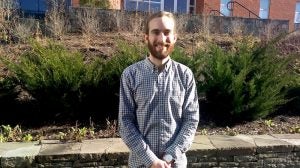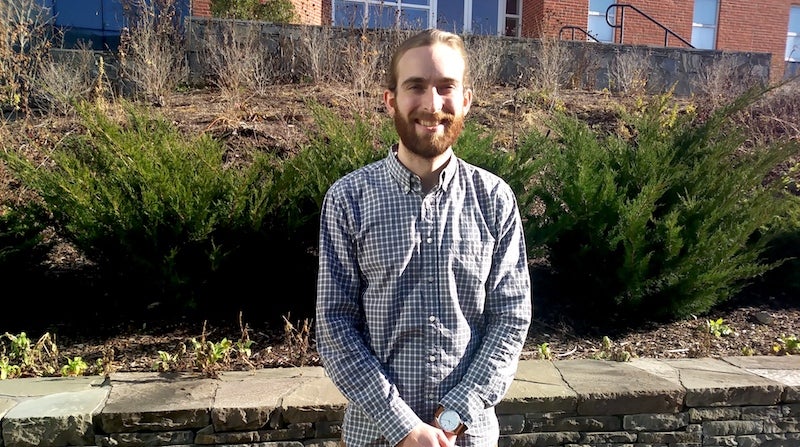URI doctoral candidate helps those with substance abuse issues ‘find other ways to cope’
 For Daniel Delaney, research at the University of Rhode Island is personal. His work on substance and alcohol abuse is driven by having in the past witnessed first-hand the damage it can cause. Delaney is doing all he can to help people facing addiction get back on their feet.
For Daniel Delaney, research at the University of Rhode Island is personal. His work on substance and alcohol abuse is driven by having in the past witnessed first-hand the damage it can cause. Delaney is doing all he can to help people facing addiction get back on their feet.
As a candidate for a Ph.D. in psychology, he is a graduate research assistant on a National Institutes of Health study evaluating community mental health providers’ use of evidence-based practices to detect and intervene in problematic alcohol and marijuana use in teens and young adults. Working closely with Professor of Psychology Lynda Stein — whose own research focuses on incarcerated youth and adolescents — Delaney presented his findings at the international Research Society for Alcoholism at the group’s 2017 conference.
As part of the NIH study, Delaney is examining the effectiveness of meditation for college students mandated to undergo treatment for marijuana infractions. Meditation helps students learn self control to override the cravings, he said. For his doctoral dissertation, he is working with the URI Student Assistance Program to evaluate outcomes and assist them in quality improvement, using the best practices for tracking intervention integrity.
“The meditation therapies are used to help people who are struggling with cravings and urges to use,” Delaney said. “They help students to pause and take a moment instead of reacting immediately, while also helping to identify what it is that causes the cravings. Most people get involved with substance abuse as a coping mechanism for stress. Therefore, the goal is to help individuals find other ways to cope that will not cause problems in the long run.”
Before coming to URI to earn his doctorate, Delaney received his undergraduate and master’s degrees from Eastern Illinois University in psychology. While pursuing his master’s degree, one of his placements required him to work in an in-patient and residential setting for those with addiction and/or substance abuse disorders.
“During that time, I developed a passion for helping,” Delaney said. “But while I loved working with that population, it was frustrating to see how many people ended up right back there after their treatment.”
He has since been dedicated to research that will help people avoid relapses, overdoses and incarceration.
“With marijuana becoming legal in more states, there may be more need for these meditation therapies,” Delaney said. “This would be especially true if an individual begins to suffer negative impacts from their substance use.”
Delaney is preparing another manuscript for submission to a peer reviewed journal on a method to evaluate confidence among individuals to resist marijuana use. After earning his doctorate, he plans to work in a clinical environment so he can pursue the best solutions for people trying to defeat substance abuse.

